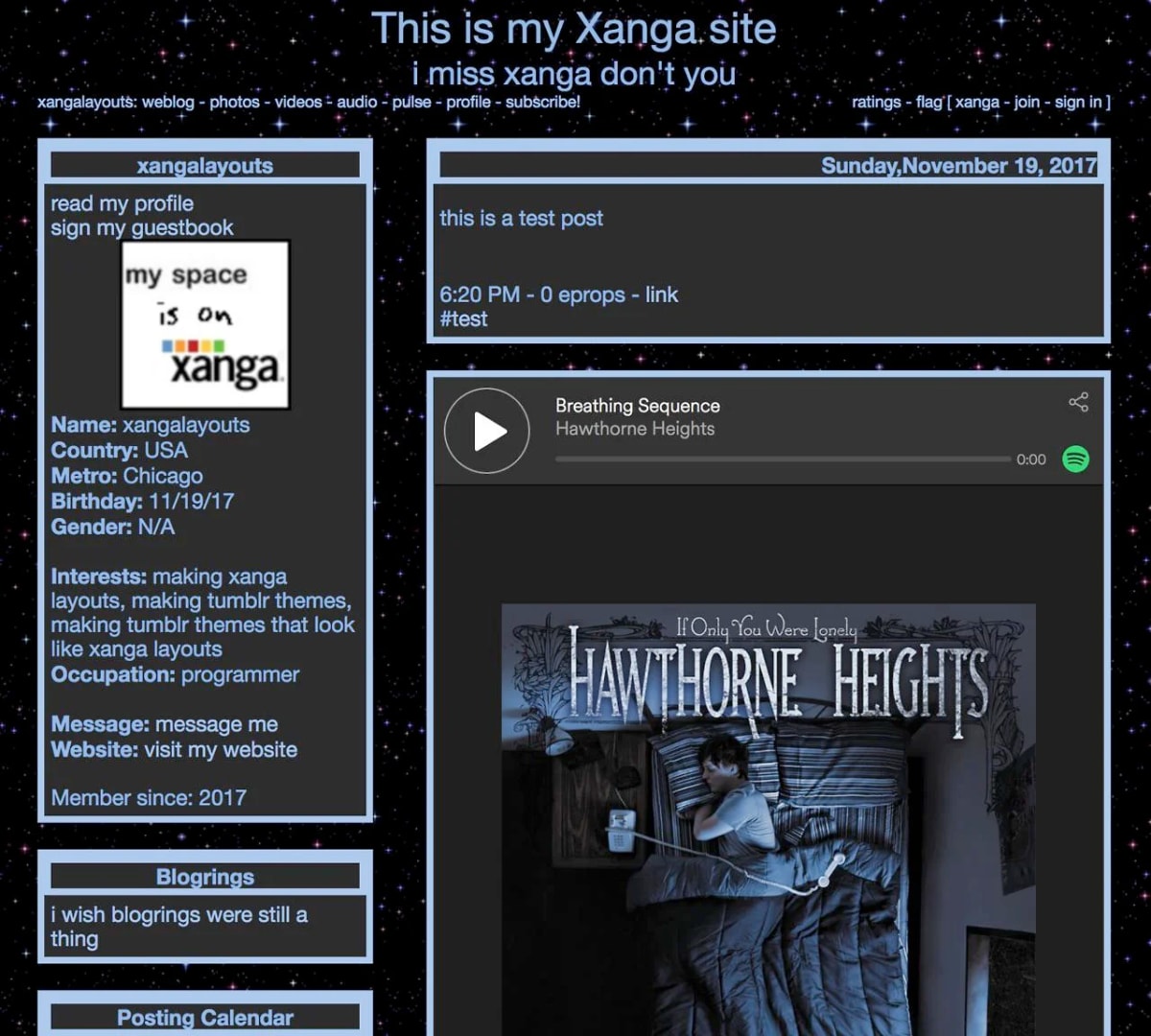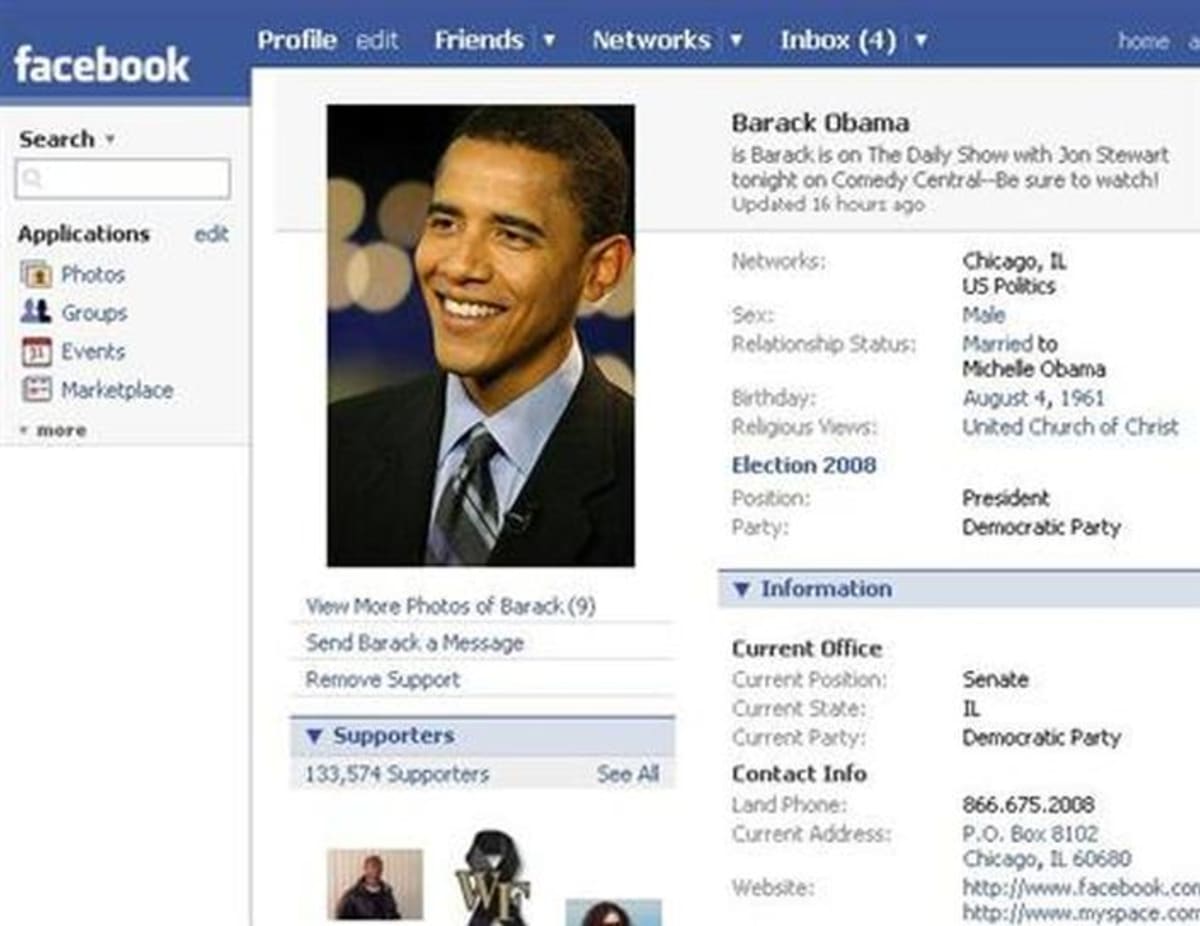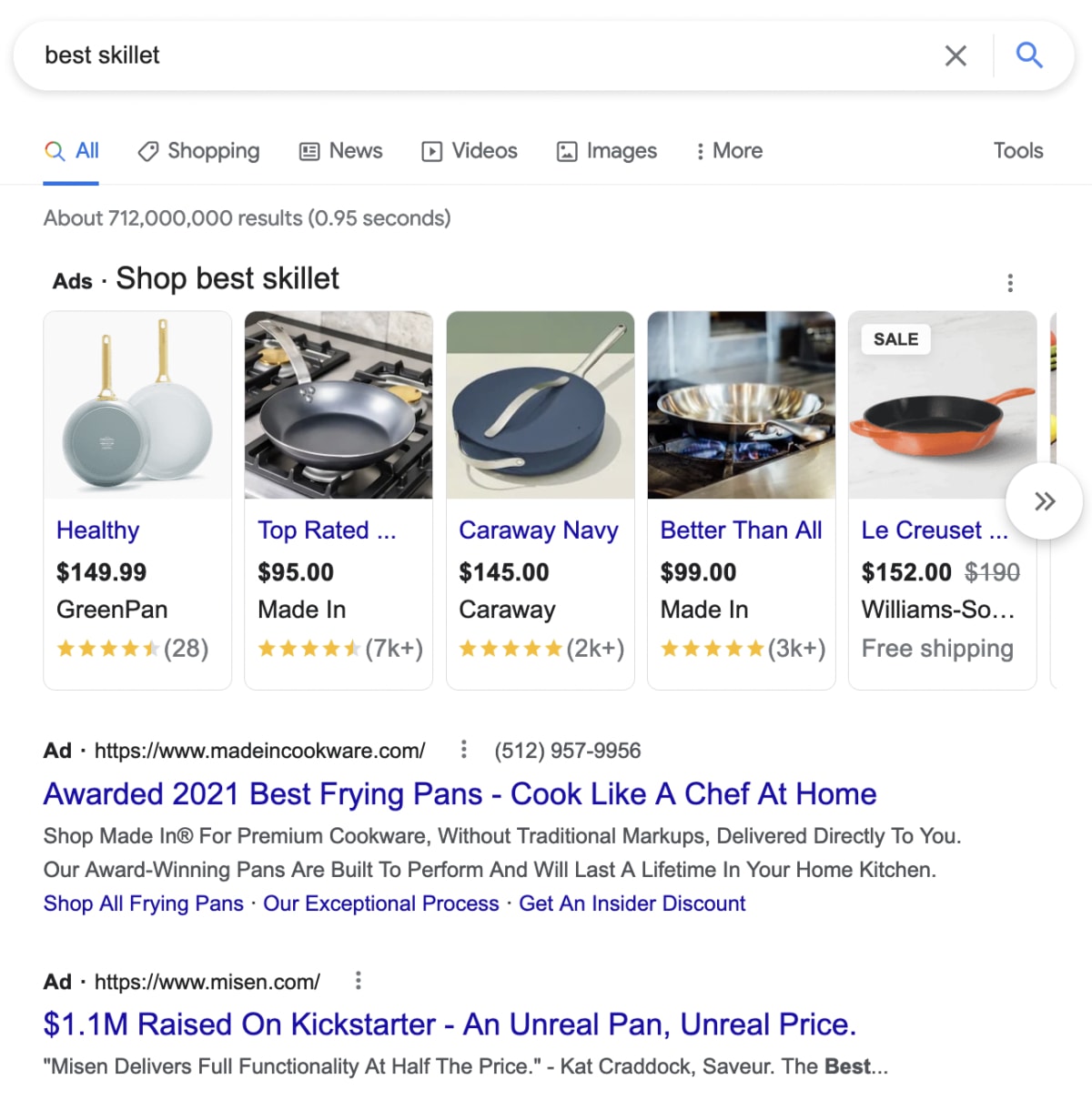I’ve been active on the internet since the mid-2000s as a middle schooler. For the past two decades, my access to the internet has always been mediated through platforms.
Back in 2005, I talked to my friends on AIM and journaled inanely about whatever happened in class that day on Xanga. Today, I talk to my friends and colleagues on Slack and journal inanely about whatever happened at work that day on Twitter. Not much has changed, and yet everything has changed.
When I made my first Xanga, the platform gave me confines to build in, but I defined nearly everything about it: not just the look but the structure of its content, its purpose, and how it interacted with the rest of the platform. MySpace enforced more control over the structure, but you still controlled your presentation. I wrote my first HTML and CSS on those platforms.

Facebook’s main user-facing innovation, as I remember it when I joined in 2008, was to strip away the personalization. It was cleaner. Everyone’s profile looked the same. It was a necessary corrective from then-dominant MySpace, where profiles were bloated with autoplaying audio, flashing gifs, and neon colors, designed by teens with no idea how to make text readable.

But it was a devil’s bargain. Once we gave away the ability to control our presentation online, we started losing control of everything else. Today, we can’t even control what appears on our screen. Algorithmic timelines force upon us stale content from days ago, suggested follows of people we don’t know, and of course, ads. Always ads.
Despite promising everything you could ever want, it has never been harder to find what you need online. Running a Google search means sifting through the first page of ads and bullshit content from SEO content farms before you get to anything useful. The social platforms are nigh unusable in their current state, where it feels like at least 25% of your timeline is ads.

Against this backdrop, we fight for the remaining scraps of attention. Our posts must be Definitive Statements, weaponized to make someone stop scrolling and engage. We whittle down our thoughts into absolutist terms to be as direct as possible. When our posts succeed, all we do is open ourselves up to context collapse. There is no winning on the platforms.
To take back some control of my own experience online, I’m starting a blog. It feels necessary to stake my claim to a place of my own. For me, a blog feels like the right format for where I want to be online.
I have no dreams of building anything sustainable. I’m not doing any real audience engagement work to try to lure people here. I’m just focusing my attention on writing here rather than writing pithy tweets. If people read, that’s cool. If not, at least I’ve been writing real words.
I realized as the calendar ticked to 2022 that I haven’t written anything that wasn’t a tweet since 2018. That’s a problem. Writing provably makes you a better thinker and a better person. I also know that firing off tweets isn’t real writing, at least not for me. On Twitter, I don’t think critically. I just fit my first thought into 240 characters and go. Not only is life on the platforms unhealthy for how I consume information, but life on the platforms is also unhealthy for how I develop my own thoughts.
If I have a mission for this blog, it is simply to make myself a better communicator and thinker through the practice of writing. As I’m writing this, I can feel how stilted my language is. These muscles are atrophied. I hope, when I look back on this post in a year, I can see an improvement in my prose and my thoughts. Hopefully, I’ll be more enjoyable to read too.
I have no parameters on what I’m going to write about. I’d like to push myself to write about more than work and the internet. I like other things, and I don’t express that part of myself enough. I hope this blog can be a space for that.
